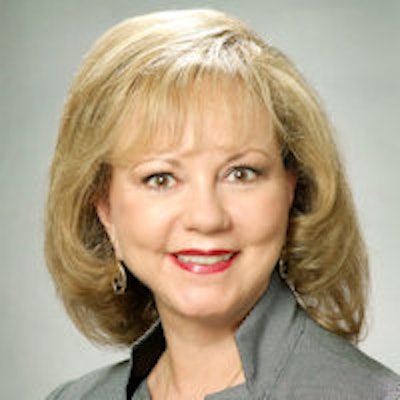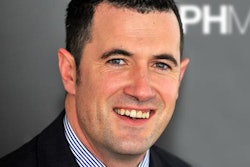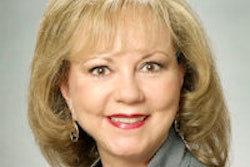
Every time the phone rings, your team members should see it as an opportunity for practice growth. A potential new patient could be on the other end of the line, and if your team can schedule that first appointment, you're one step closer to turning this new patient into a loyal patient.
 Sally McKenzie, CEO of McKenzie Management.
Sally McKenzie, CEO of McKenzie Management.Unfortunately, that's not how most dental teams view practice phone calls. Instead, they see them as annoying disruptions that keep them from completing important tasks. They want to get off the phone as quickly as possible and don't even try to get these patients on the schedule. So instead of calling your practice their new dental home, these potential patients call the practice down the street.
You may not realize it, but if your team doesn't know how to handle new patient calls, it's costing your practice thousands of dollars in lost revenue. The good news is you can turn it around.
Here are eight tips to help your team members significantly improve their telephone techniques, which will in turn grow your patient base and your bottom line.
1. Don't look at patient calls as a nuisance
Yes, your team members are busy people, but they're not too busy to talk with potential or current patients who call your practice. And trust me, if the team member taking the call is irritated by the disruption, the caller will notice. The sighs and the distracted long pauses make the team member seem rude and screams, "I don't value your call or your business." Not the best way to attract new patients to your practice, or to keep current patients coming back.
Make sure team members understand the importance of properly answering phone calls. If they focus on providing friendly customer service, they'll be much more likely to schedule an appointment before they hang up.
“Talking to a patient looking for weekend hours you don't offer? Talk up the early morning hours the doctor has on Tuesdays.”
2. Never put up road blocks
If potential patients call looking for something you don't offer, don't tell them "no" or "we can't." Instead, offer an alternative. Talking to a patient looking for weekend hours you don't offer? Talk up the early morning hours the doctor has on Tuesdays, or the evening hours the practice offers on Thursdays.
3. Create scripts
I recommend developing phone scripts for various situations, including new patient calls. This will ensure team members know exactly what to say and won't find themselves fumbling for the right words. It also helps keep messaging consistent. Just remember to keep the conversation natural -- patients don't want to talk to a robot.
4. Take the time to listen
Instead of trying to rush off the phone, focus on what callers are telling you and think about how you can help. Answer their questions about the practice, and address any concerns they might have. Don't just wait for your turn to talk. Take the time to make a connection, and you'll start these important relationships off on the right foot.
5. Know what the practice has to offer
Your team members must be able to confidently talk about the services you offer. If they can't, patients won't feel confident about entrusting your practice with their dental care.
6. Don't mumble
Speaking traits that are barely noticeable in person become pronounced over the phone. Team members should be trained to speak clearly and professionally. Tell team members to answer the phone just as if they were greeting a patient walking through the practice door -- enthusiastically and with a smile.
7. Keep your word
When you tell patients someone will call back with the information they requested before the end of the day, call back before the end of the day. If you forget and call back three days later, chances are another practice already provided the information.
8. Don't keep them on hold
Patients don't like to be put on hold indefinitely, especially when you ask them to hold before they even tell you why they're calling. Most people will become frustrated and hang up before you return to the line. Instead of putting patients on hold, tell them you value their call and their time, and ask if you can call them back in 15 minutes -- and then call them back in 15 minutes.
Sally McKenzie is CEO of McKenzie Management, which offers educational and management products available at www.mckenziemgmt.com. Contact her directly at 877-777-6151 or at [email protected].
The comments and observations expressed herein do not necessarily reflect the opinions of DrBicuspid.com, nor should they be construed as an endorsement or admonishment of any particular idea, vendor, or organization.


















